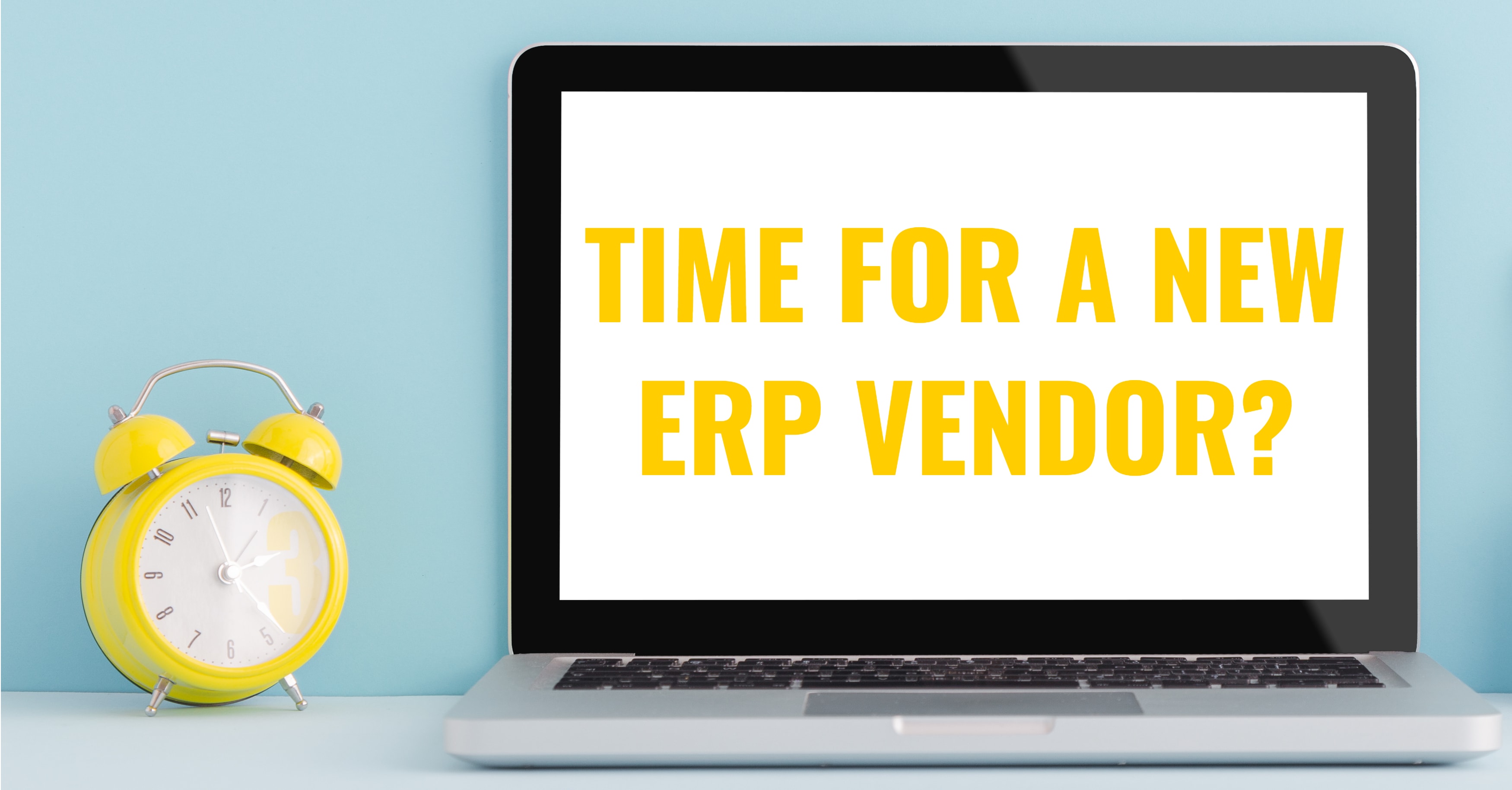Tips for Choosing New ERP
We frequently come across companies that have been operating on enterprise resource planning (ERP) systems well past their expiration date. However, it’s not always the case that these businesses are using legacy systems. They may have been on their instance for only a few years and have properly taken care of it, but as businesses grow, they may find that the software no longer supports their needs. Maybe it lacks the scalability to handle a growing customer base. Perhaps its rigidity makes it difficult to execute desired integrations. Or budget overruns are taking place as IT teams troubleshoot issues or make customizations. When problems of this sort occur, the right course of action might be to part ties with your current ERP and seek out a new vendor.
Of course, this is no easy task. Manufacturers and distributors in this situation need to make a better choice the second time around so they’re not scrambling for a new solution or experiencing errors again in a few years. With 20 years of ERP consulting under our belts, Datix knows a thing or two about enterprise software. Check out our tips for selecting a new ERP vendor.
Assess Your Needs
As expected, many of the steps required for the initial ERP vendor selection apply to choosing your next provider. That means that one of your earliest actions should be to assess your ERP needs. Form an evaluation committee consisting of end-users from various departments, top management and functional experts to ensure employees across the enterprise get their voices heard throughout the process. Team up with an ERP consulting firm to leverage their expertise to make the best decision.
Once you have your committee, thoroughly evaluate existing business processes. As you identify current gaps and challenges, determine which of your current ERP features continue to be useful and what features need to go. Is anything in your current system useless for your workforce? Where is your software falling short?
A lot of times businesses aren’t as diligent as they need to be when evaluating their business processes. Organizations seek out solutions that support daily tasks, but not the occasional activities that users have to perform. Or they leave out a department or a few critical users when determining the functions that the ERP should support. By taking the time to analyze your current ERP instance’s performance and business processes, you’re building the foundation to finding a new solution that will address challenges and optimize operations.
Plan for the Future
As you shop for a new vendor, you can’t just think about the immediate benefits of replacing your existing ERP system. Keep in mind that the average life span of an ERP instance is 10 years. Getting the most out of your ERP and gaining optimal ROI means thinking long-term. Picture where your business will be in 10 years. What are the company’s long-term goals? Expansion into global markets? Adding new offices? There’s a high chance that several years down the line, if not sooner, your business will consider an integration to further automate workflows.
Wherever you see yourself in 10 years, make sure you choose a vendor that you could see yourself using for a long time. ERP should be flexible and agile enough to support your future development. Additionally, the vendor should demonstrate a record of continuously upgrading their products to take advantage of technological advancements and align with evolving industry needs.
Don’t Make the Same Mistakes Twice
If you’ve been unsatisfied with the performance of your ERP solution, there’s a good chance that there were flaws in your selection process. As you conduct research into different ERP vendors, make sure to also look up vendor selection strategies. While you assess business performance, examine your initial selection process as well.
One mistake companies tend to make is prioritizing the initial cost of the ERP system over its performance. Sure, you don’t want to exceed your means, but remember to think long-term when making your selection. Freemium software and other cheap options tend to be far too rigid to support growth, meaning you’ll be going through this process again in a few years. There are plenty of ERP solutions that are still relatively inexpensive but, most importantly, include the functionality and agility to last for a long time and provide a substantial return on your investment, thereby making it the most cost-effective option.
A critical move to honing your vendor selection process is working with an outside expert. ERP consultants know how to follow best practices when it comes to choosing vendors and executing projects. They will guide you throughout your selection, ensuring you decide on a solution that meets your industry needs and maximizes your workforce’s productivity for years to come.
Wrap Up
We know that switching vendors isn’t an easy move, but if you make the right choice, you can expect major improvements that will be well-worth the process. In our time as enterprise software consultants, we’ve witnessed countless manufacturers and distributors transform their businesses by replacing their ill-performing systems with Epicor ERP. Epicor is designed for manufacturers and distributors of all sizes. They’ve proven their commitment to providing their customers with the best in enterprise software time and time again as they continuously leverage the latest technology to create robust solutions.
When you work with Datix consultants, you gain an Epicor Platinum Partner, certified partner of Salesforce and Microsoft Dynamics 365 and a Magento eCommerce expert. Plus, we’ve built a Unity integration platform that connects ERP instances with a wide array of solutions to forge a single source of truth. From start to finish, our dedicated consultants provide premier service and solutions to help our clients get the most from their software.
Ditch your current ERP vendor. Contact Datix today to find out why you should make the switch to Epicor!
{{cta(‘770c1544-d87d-4acb-9fc4-7a25e1385094′,’justifycenter’)}}


